- About farmer
- What is Whole Filament Saffron

Haji Hasan Zare’kar
Biography of Haji Hasan Zare’kar
Haji Sen is the local name of Mr. Haj Hassan Zarekar. Haji Hasan Zare’kar is the third child of a family six. He comes from a family that has farmed for generations, which is why his family name is Zare’kar meaning farmer in Farsi. Haji Hasan Zare’kar carries out his farm work with his own two hands and invests his entire heart in his work. He firmly believes in traditional farming techniques and insists on avoiding chemical spray and fertilizers in his farming.
A day with Haji Hasan Zare’kar
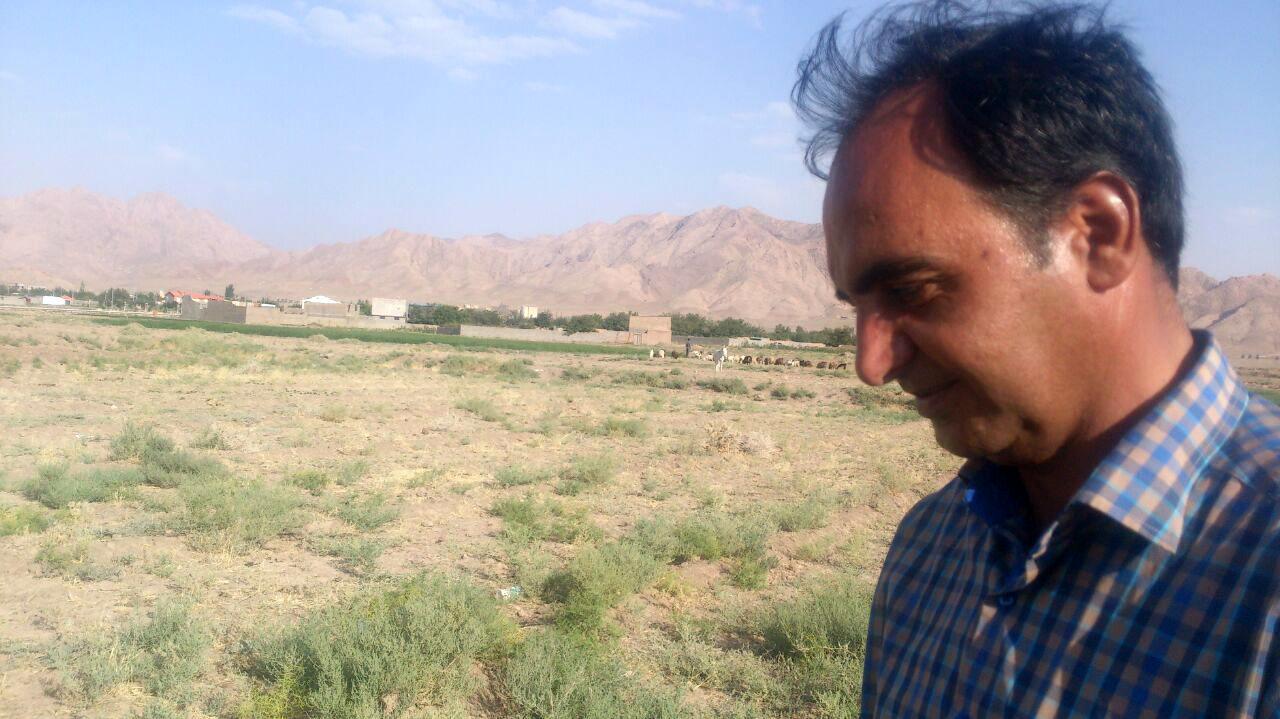
Haj Hassan’s father Haj Ali has passed away, but is remembered as being an incredibly skilled and respected man who had worked for many. Haj Ali was an instrumental character in establishing the first bus route from Qaen to Mashad when the first interurban buses arrived in Iran. During the winter months, most farmers would take it easier because it was the season to make the Shiite pilgrimage hourney to the Shrine of Imam Reza in Mashad. But Haj Ali remained committed to both his farming vocation and bus vocation until the end of his life. His son, Haj Hassan, after graduating from high school and completing his military service, worked as a bus driver in his father’s company. However, because of living close to his father and uncles who were all farmers, Haji Hasan Zare’lar became increasingly interested in farming. Just a few years ago, he decided to leave his bus job and become a full-time saffron famer. In this photo, Haj Hassan stands in the middle of his saffron fields. The farm might look like a piece of uncultivated land, but this is because the photo was taken in the middle of summer when the saffron is dormant. Saffron grows in the winter and goes into hibernation late Spring.
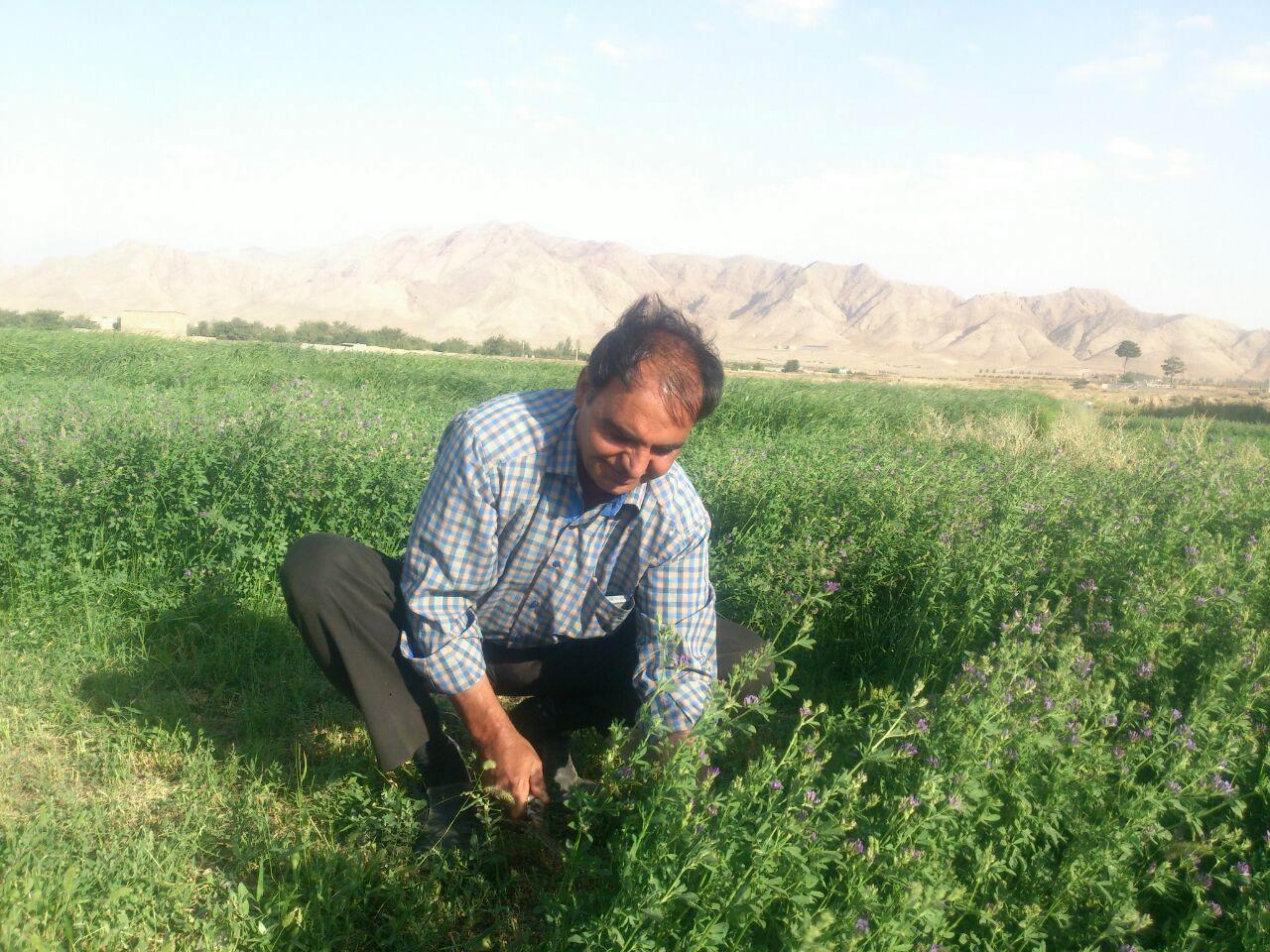 In addition to his main work as a saffron farmer, Haji Hasan Zare’kar grows other crops in the summer months when saffron harvesting comes to a hiatus. Alfalfa is grown as a stock feed by all the farmers here. During the summer months, once a week the Alfalfa plants need watering, which makes it a relatively water-intensive crop.
In addition to his main work as a saffron farmer, Haji Hasan Zare’kar grows other crops in the summer months when saffron harvesting comes to a hiatus. Alfalfa is grown as a stock feed by all the farmers here. During the summer months, once a week the Alfalfa plants need watering, which makes it a relatively water-intensive crop.
The bulk of Haji Hasan Zare’kar’s farm is located in an area where the water supply relies on water from Shahik Qanat. However, Shahik Qanat dried out a few years ago. Now next to the Qanat, farmers have dug a deep well to reach for water. Presently, the water level in the well is significantly low and is not enough to supply all the farms with sufficient water. Because of this, the farmers have tried to dig for water in different places, but the water supply remains low.
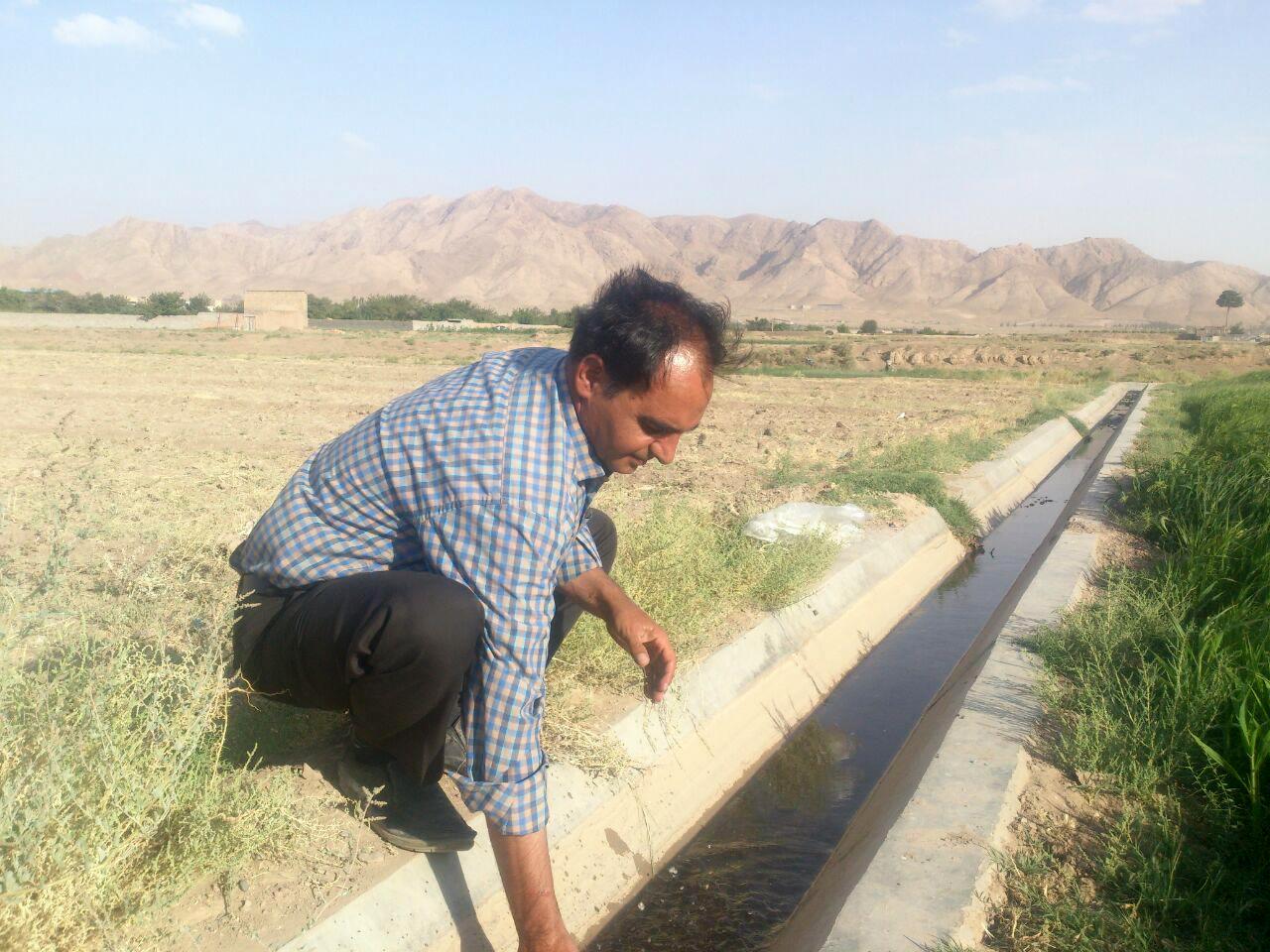
This is a photo of the Shakik aqueduct, which has been blocked in front it they have placed a well-drilled water facility.
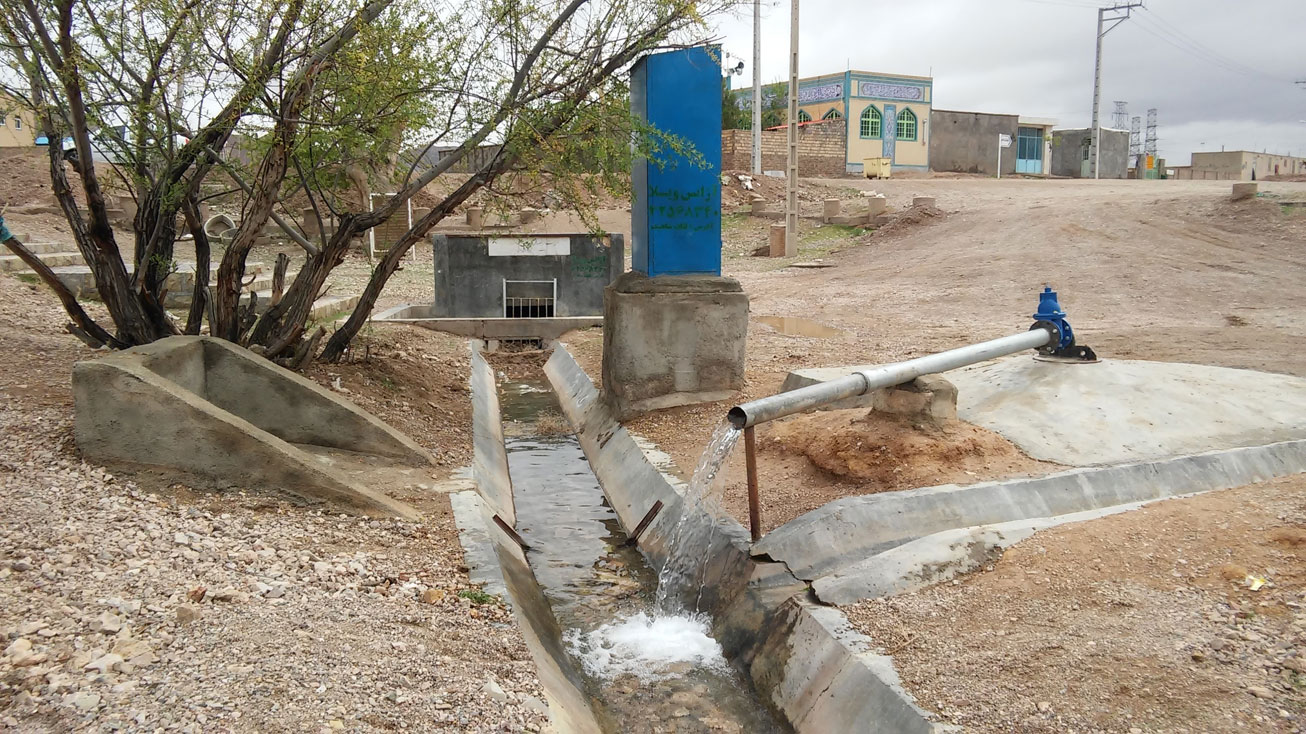
Haji Hasan Zare’kar has planted tomatoes. The local Ghean tomato is juicier, therefore it is perfect for making Shiraz Salad (traditional persian salad). Along with the locally grown onion (another important ingredient in Shiraz salad), it makes a very unique and delicious meal. Tomatoes from his farm can be combined with local Mashadi tomatos from the bazaar to make a colorful and flavorful tomato paste that is unbeatable.
Haji Ali, the father of Haj Hassan, also grew tomatoes. Summer crops of this kind have been planted for generations. Summer to these farmers does not only mean warm days, it also means hard work. This was a lesson that Haji Hasan Zare’kar learnt from his father, to continue the same work ethic throughout the year. Unfortunately, in the last 15 years, the area Haji Zare’kar’s farm is located in has seen a number of severe changes. The mountains and farms remained where they have always been, but the water that used to run through this area is now nowhere to be seen. Shahik Qanat that been supplied water for the last 700 years dried out in the last 45 years.
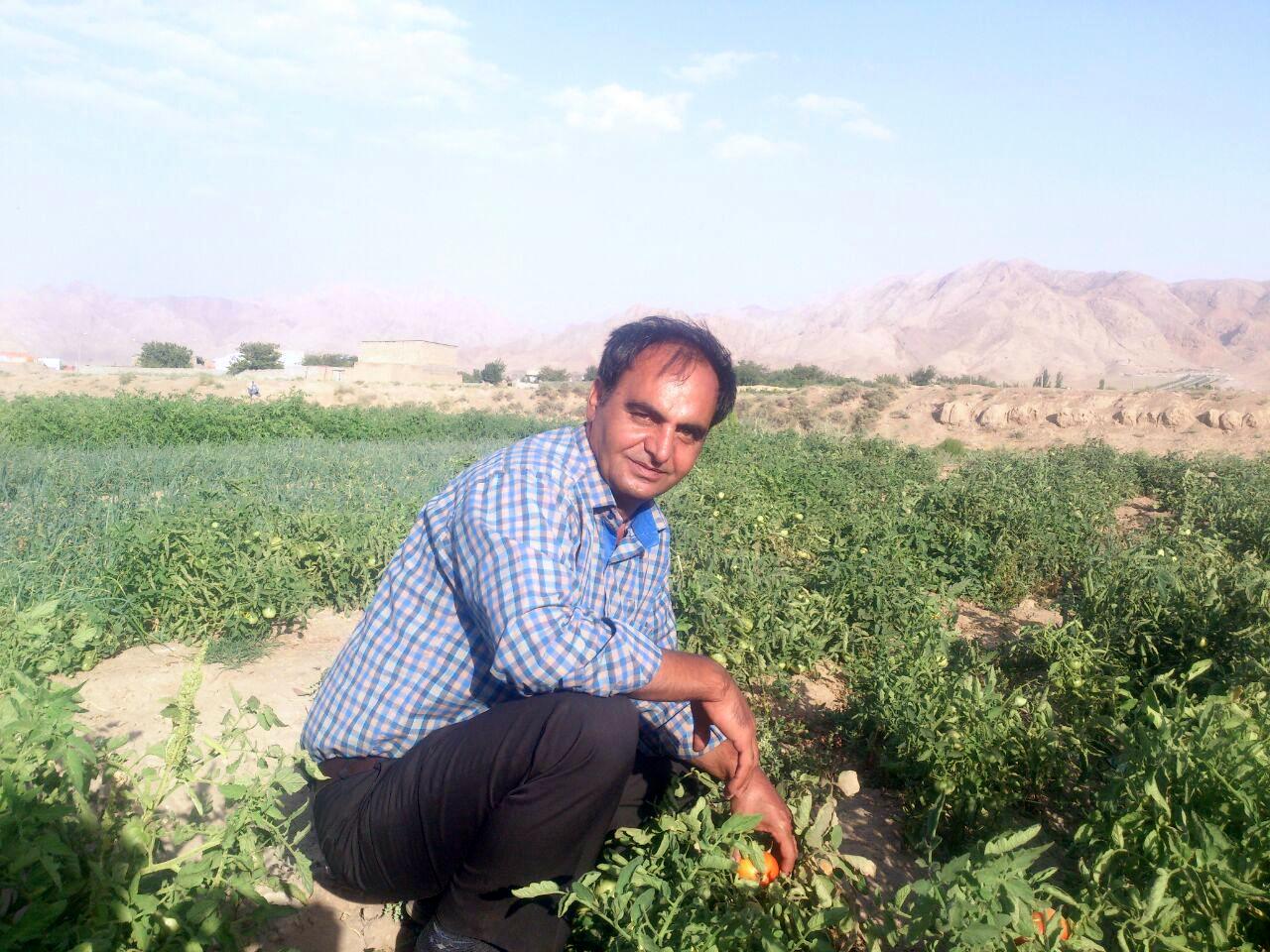
All the efforts for creating Keshmoon have been to tell farmers like Haji Hasan Zare’kar and other farmers who rely on Shahik Qanat to not be worried about their incomes and to be assured that the internet and new age remedies can assist you. We want to remind farmers that by farming the less water intensive crop of saffron through improved farming techniques, your income will be more than before. But we must do this all while taking a hard critical look at the water situation in our country and understand what kind of farming practices we can use to improve and change the situation.




